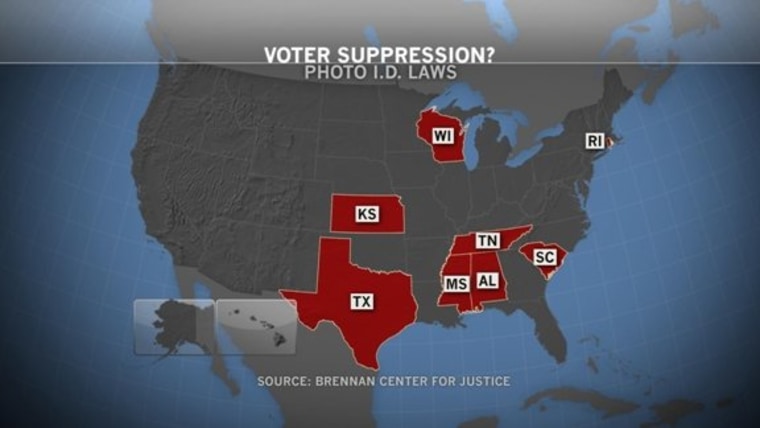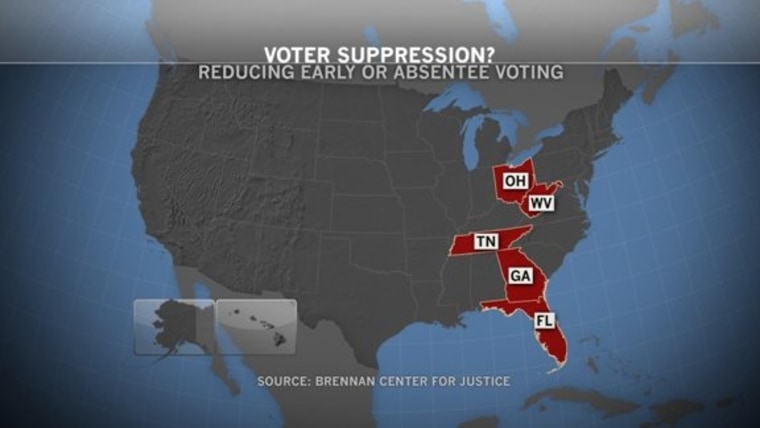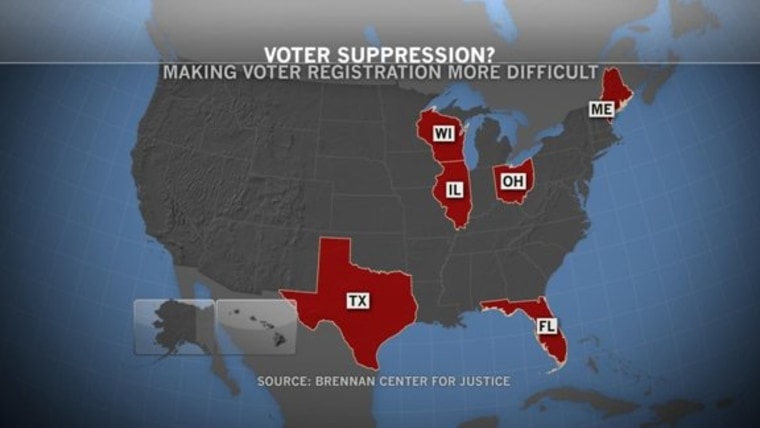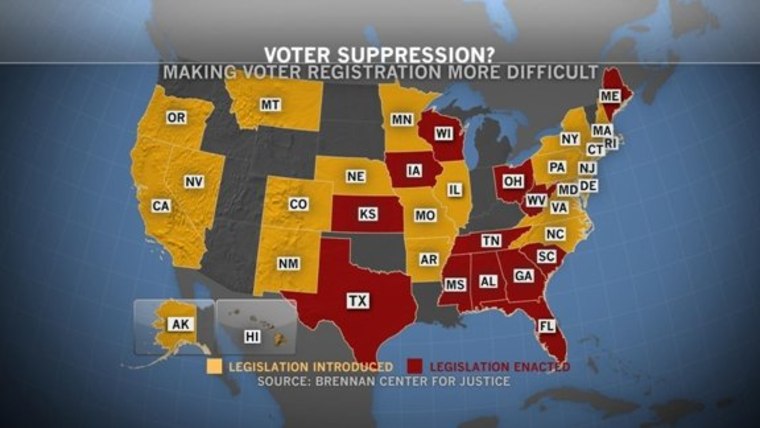Last night, Ed called it "one of the most important stories in America, and I am committed to following it."
He was talking about voter suppression -- a strategy to influence the outcome of an election by discouraging or preventing people from exercising their right to vote.
New rules in more than a dozen states, enacted after Republicans won control of their legislatures in the 2010 mid-term elections, could make it harder for as many as five million eligible voters to participate, according to a study by New York University Law School's Brennan Center for Justice.
The states affected, including the critical battlegrounds of Florida and Ohio, account for 171 of the 270 electoral college votes needed to win the presidency, the center said in its October report.

Just in the last year, legislation to change voting rules has been introduced in 34 states, fourteen of which have actually enacted new laws. Eight (including South Carolina, Texas and Wisconsin) enacted new photo ID laws. And five (including Florida and Ohio) have cut back on early voting.

Republicans know 2012 is going to be a tough election and they are trying their best to block the vote. These laws affect key Democratic constituencies, including the poor, the elderly, college students and people of color and people in rural areas.
Fortunately, the Justice Department is reviewing voter laws in several states.
U.S. Attorney General Eric Holder addressed the issue at a speech in Texas earlier this week, saying the voter registration system is out of date and is leaving millions of folks behind.
Of the 75 million adult citizens who did not vote in the last presidential election, 60 million were not even registered.
"All eligible citizens can and should be automatically registered to vote," Holder said in remarks prepared for delivery at the Lyndon Baines Johnson presidential library in Austin, Texas, Tuesday. "It should be the government's responsibility to automatically register citizens to vote, by compiling - from databases that already exist - a list of all eligible residents in each jurisdiction."
But is it too late to solve this problem for the 2012 election?
Joining Ed to discuss this tonight at 8pET will be Mike Papntonio, host of the Ring of Fire radio program, Caroline Heldman of Occidental College and Hilary Shelton of the NAACP.
You can join the conversation by commenting on Facebook or tweeting with the #edshow hashtag so we can share your thoughts on the show!

